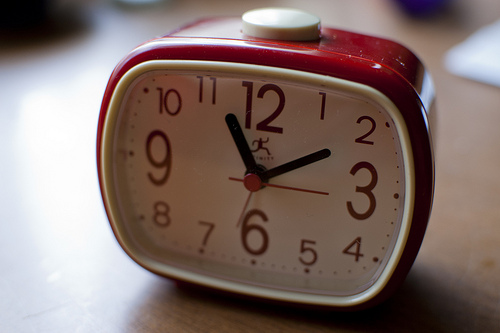Peri- and post-menopausal women frequently complain of insomnia or poor sleep quality. Sleep disturbance is often attributed to nocturnal hot flashes; however, a recent study from researchers at Wayne State University School of Medicine suggests that a sizeable proportion of menopausal women may have a primary sleep disorder. There are various options for managing insomnia in this population.
Non-Pharmacologic Options
The MENOS 2 study included peri- and post-menopausal women with problematic vasomotor symptoms (10 or more hot flashes or night sweats per week). In this randomized controlled trial, 140 women were assigned to group cognitive behavioral therapy or CBT (n=48), self-help CBT (n=47), or no treatment (n=45). After 6 weeks, women receiving group and self-help CBT both had significantly reduced hot flash and night sweat symptom ratings compared to women in the no treatment control group. In both groups there were improvements in mood, sleep and quality of life.
Given the efficacy and safety of this intervention, CBT should be offered to all women who are suffering from vasomotor symptoms and sleep problems related to menopause. The problem, however, is finding treaters who are familiar with CBT and its use for menopausal symptoms. Addressing these issues related to access to treatment, several recent studies have used telephone-guided CBT to manage menopausal sleep problems.
In one study, 47 women completed a Self-Help CBT intervention (including a manual and a relaxation/paced breathing CD) during a 4-week period. They also received one ‘guiding’ telephone call from a clinical psychologist at 2 weeks into the treatment to provide support and review treatment goals. At 6 weeks (post-treatment) and 3 months (follow-up) after the end of the intervention, women reported less frequent hot flashes and night sweats, along with improvements in sleep quality and mood.
The findings from a randomized controlled trial of telephone guided CBT were presented at the Annual Meeting of the Associated Professional Sleep Societies (Abstract 1152) on June 8, 2015. This study included 106 women (mean age, 54.8 years) with insomnia symptoms of moderate severity and at least two hot flashes per day. The women were randomized to receive either CBT or menopause education (MEC) as a control. Telephone CBT consisted of education on menopausal and age-related changes in sleep, sleep hygiene, sleep restriction, and cognitive strategies to disrupt sleep-related dysfunctional beliefs and attitudes. MEC included basic health information related to menopause. CBT and MEC were delivered by a trained master’s-level “coach” via weekly telephone calls lasting 20 to 30 minutes for 8 weeks.
Women receiving telephone CBT experienced greater improvements in ratings of sleep efficiency (P < .001), depression (P = .006), and perceived stress (P = .04). There was no difference between the two groups in the reported frequency of hot flashes. however, ratings of hot flash “interference” were significantly reduced in the CBT group as compared to the control group.
Pharmacologic Treatments
Estrogen replacement therapy can improve sleep, as well as other menopausal symptoms. However, many women cannot or do not want to use hormone therapy given the risks associated with its long-term use.
Sedative-hypnotic agents, such as zolpidem (Ambien) and zalepion (Sonata), are commonly used in this population. While these sedating agents may be effective for some women with occasional insomnia, they are not appropriate for long-term use, and there has been increasing concern that they may affect coordination and cognition in older patients.
Benzodiazepines are frequently used to treat insomnia. While this option may be appropriate in women for which anxiety is the cause of the sleep disturbance, they may not be an ideal long-term option given concerns regarding their use in older patients.
Serotonin reuptake inhibitors, such as paroxetine, may improve sleep. While these medications are not sedating per se, they may reduce vasomotor symptoms that interfere with sleep. In addition, they may treat anxiety and depressive symptoms, which also lead to sleep disruption.
Gabapentin (Neurontin) may improve sleep quality and decrease vasomotor symptoms. In addition, it is well-tolerated and free of serious side effects.
Given the various studies we have recently reviewed which indicate that the transition to menopause may take place over a period of many years for some women and that menopausal symptoms may have profound effects on a woman’s quality of life and well-being, we need to make sure menopausal women are aware of the many effective treatments available for managing their symptoms.
Ruta Nonacs, MD PhD
Ayers B, Smith M, Hellier J, Mann E, Hunter MS. Effectiveness of group and self-help cognitive behaviour therapy to reduce problematic menopausal hot flushes and night sweats (MENOS 2): a randomized controlled trial. Menopause. 2012; 19(7):749-759.
Stefanopoulou E, Hunter MS. Telephone-guided Self-Help Cognitive Behavioural Therapy for menopausal symptoms. Maturitas. 2014 Jan;77(1):73-7.
Telephone CBT Works for Insomnia in Menopausal Women (Medscape)








Very good info. Lucky me I came across your blog by chance (stumbleupon).
I have book-marked it for later!